The first thing to learn in poker is how to make each hand class and the order in which hands win.
A poker flush is a hand where all 5 cards have the same suit, for example K♠8♠7♠5♠2♠. When comparing two or more flushes, the strongest is decided by the best high card flush. Firstly, by the best highest card in the flush, then if this is tied by the highest second card and continuing down until the lowest card in the flush.
Flushes are the 5th strongest hand category in poker, losing against:
- Full houses
- 4 of a kind
- Straight flushes
- Royal Flushes.
- But flushes are ahead of:
- Straights
- 3 of a kind
- 2 pairs
- Pairs
- High card hands
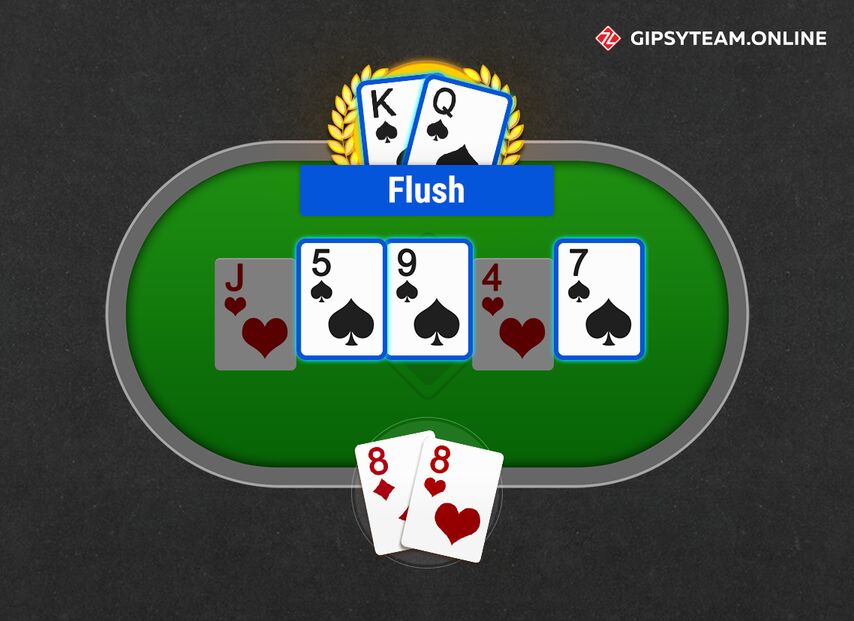
If none of the community cards are paired, a flush is the strongest possible hand unless straight flushes are possible.
What are Flush Draws?
Before the river, you may not currently hold a poker flush but could improve to one on a future street. This is known as having a flush draw. The stronger the poker flush you can improve to (by having higher cards of the relevant suit), the better your draw is because there’s less risk of being dominated by a better flush if you complete. Your hand may have other outs to improve, like to a straight or top pair.
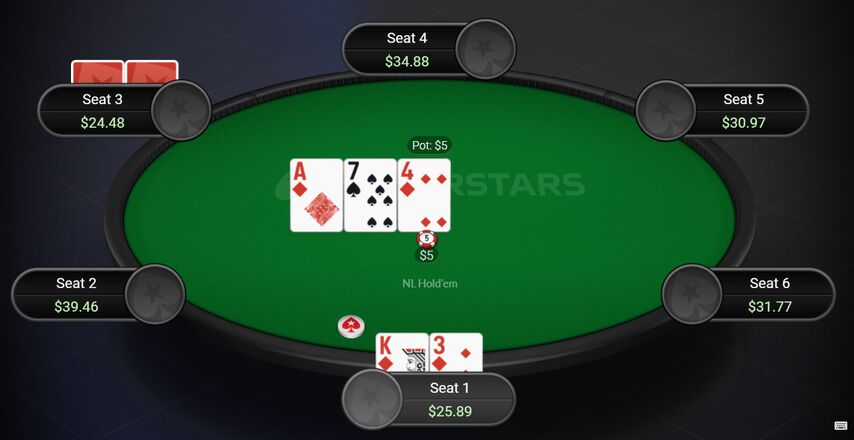
When deciding whether to continue against a bet with a flush draw, the odds of it completing given below can help when compared to the pot odds of the bet faced. There are other things to consider like whether the hand is strong enough to sometimes win when the flush misses, and if it would dominate other flushes or be dominated when it completes.
If you can make 3 cards of the same suit on the flop and need both the turn and river to complete a flush, this is known as a backdoor flush draw. The probability it will make a flush is only 2.6%, so these draws only improve your hand strength a small amount, but it could be the deciding factor in a close spot.
Ways to make a Flush
Flush on the board
When the 5 community cards make a poker flush, all players chop with the same board flush unless someone has a higher card of that suit than on the board which will make a stronger high card flush.
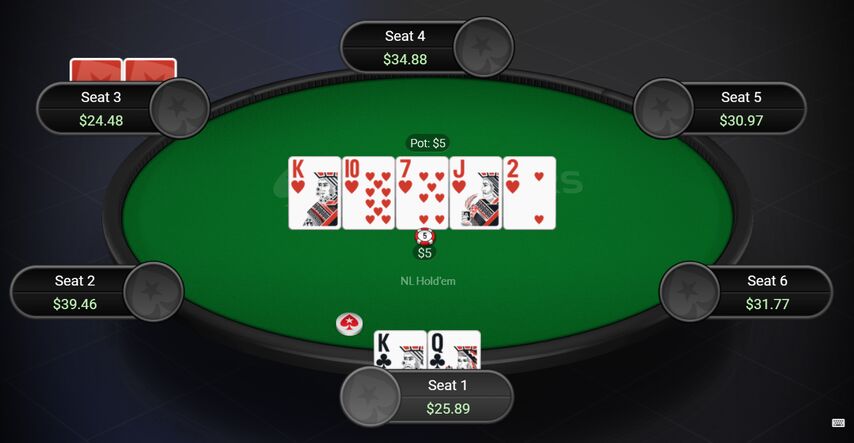
4 flush card boards
On these boards, only one hole card is required to make a poker flush which can be done with both offsuit hands (a hand with 2 different suits) and suited hands.
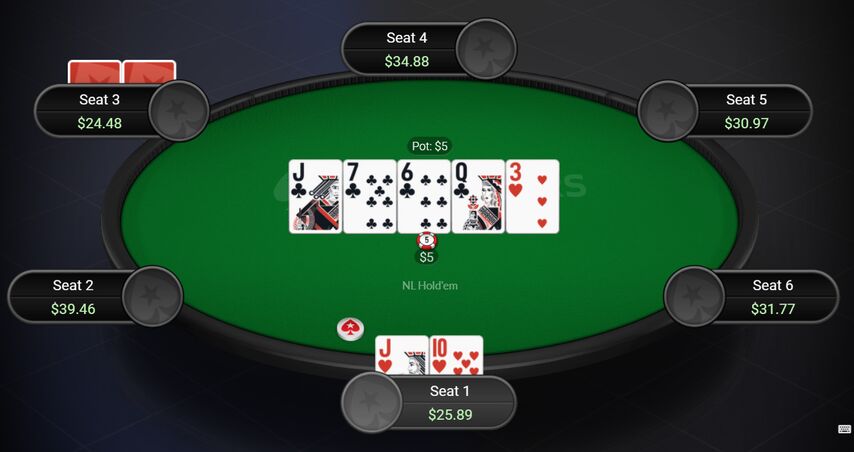
3 flush card boards
In these cases, it is the least common to make flushes because you need a suited hand where both of your hole cards contribute to the flush.

Flush Blockers
On 3 flush card boards, you may only hold one card of that suit (known as a flush blocker) which doesn’t give you a flush but reduces the number of flushes any opponent can have. These can be good hands to bluff with because it means there are less possible strong hands to call. Having higher blockers are usually preferred because they block the stronger flushes and more combinations of flushes when the weaker suited hands would have folded more already.
Probabilities
Suited hands are more likely to make flushes than offsuit hands. Also when a suited hand makes a low flush on 3-flush boards another player needs 2 cards themselves out of only 8 left in the deck to beat you, while if you make only a low flush on 4-flush, more often you will be dominated by a bigger high card flush.
The table below shows the odds of improving to flushes with different hands.
| Outcome | Offsuit Hand | Suited Hand |
|---|---|---|
| Flopped Flush | 0% | 0.84% |
| Making a Flush by the Turn | 0.43% | 2.94% |
| Making a Flush by the River | 1.93% | 6.47% |
| Flopping a Flush Draw | 2.24% | 10.9% |
| Flopped Flush Draw completing on the turn | 19.1% | 19.1% |
| Flopped Flush Draw completing by the river | 35.0% | 35.0% |
| Flush Draw on the turn completing on the river | 19.6% | 19.6% |
Omaha and Short Deck
In Omaha, players have to use exactly 2 of their cards and 3 from the board to make a hand. When you have a hand with more than 2 cards of the same suit it’s worse than only 2 because it means there are fewer outs left in the deck to complete a flush.
In short deck, the hand rankings are different from Holdem and Omaha. Flushes are ranked above full houses so flushes will beat full houses, straights and lower hands but still lose against 4-of-a-kind and straight flushes.
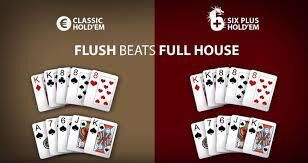
We have articles for all other poker hands which you may want to look at.















